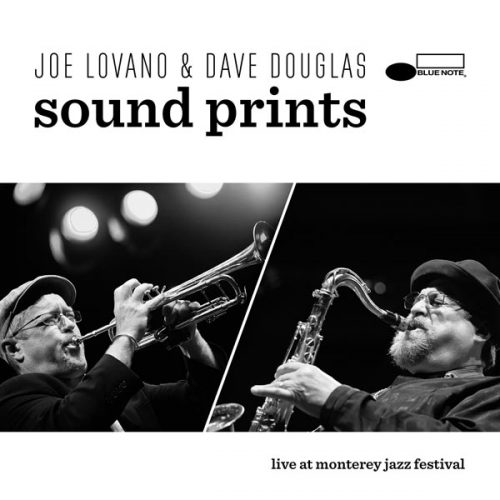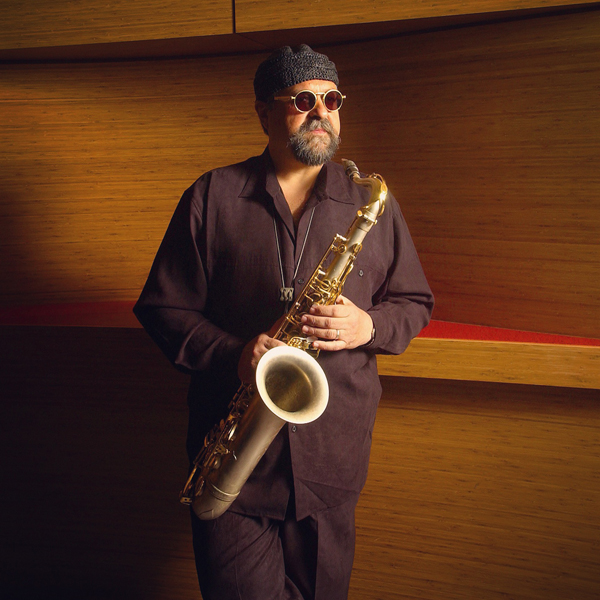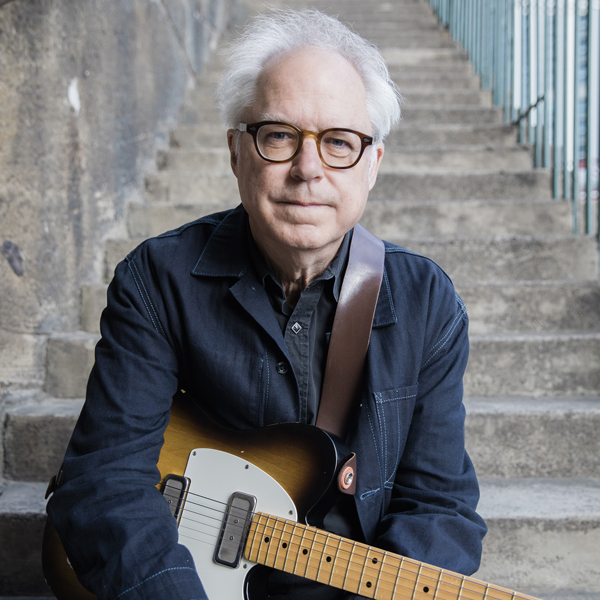Dave Douglas arguably became the most original trumpeter/composer of his generation. Douglas’ stylistic range is broad yet unaffected; his music is not a pastiche, but rather a personal aesthetic that reflects a wide variety of interests. He explicitly cites such diverse influences as Igor Stravinsky, Stevie Wonder, and John Coltrane. As a composer, Douglas adapts and synthesizes unusual forms and creates his own out of disparate elements. As a trumpeter, he possesses a comprehensive jazz technique; certainly one hears the ghost of Lester Bowie in Douglas’ expressive manipulations of timbre and pitch, but more pronounced is the integration of distinctive compositional and improvisational conceptions that ultimately defines his work.
Douglas grew up in the New York City area. He started playing piano at the age of five, then trombone at seven before discovering the trumpet at nine. He learned jazz harmony in high school and began playing improvised music as an exchange student in Barcelona, Spain. From 1981 to 1983 he studied in Boston, first at the Berklee School of Music, then the New England Conservatory. He moved to New York City in 1984, where he attended New York University and studied with Carmine Caruso. In 1987, he toured Europe with Horace Silver. The early ’90s saw Douglas begin to record in earnest; he led or co-led dates for the Hat Art, Soul Note, New World, and Arabesque labels. His various bands included the Tiny Bell Trio, a self-described “jazz-Balkan-improv” group with drummer Jim Black and guitarist Brad Shepik (who used the surname Schoeppach at the time); his String Group, which included violinist Mark Feldman, cellist Erik Friedlander, bassist Mark Dresser, and drummer Michael Sarin; and his Quartet and Sextet, which included drummer Joey Baron. Also busy as a sideman, he could be heard during this period on recordings by Patricia Barber, Myra Melford, Anthony Braxton, and John Zorn (particularly the latter’s original Masada quartet), among others, and the trumpeter continued such collaborations through to the end of the new millennium’s first decade.
Douglas began recording for RCA in 2000 with a tribute to jazz pianist Mary Williams titled Soul on Soul, a Down Beat Album of the Year award-winner that markedly enhanced the trumpeter’s profile on the jazz scene. That same year A Thousand Evenings, featuring accordionist Guy Klucevsek, was released, followed by El Trilogy and Witness in 2001. It was with Witness that Douglas began to broaden his already eclectic scope, incorporating electronic-savvy improvisers like Jamie Saft and Ikue Mori, as he had first begun to investigate with the samplers of Anthony Coleman and Yuka Honda on 1997’s Sanctuary. His next album, The Infinite, featured a more familiar sound but surprising covers of songs by Rufus Wainwright and Björk. Freak In, a more electronic-oriented effort, was released in 2003.
Douglas began his own Greenleaf Music label in 2003 and introduced it with the Mountain Passages album, released in early 2005 by a new aggregation, Dave Douglas & Nomad. Next came yet another new ensemble for the trumpeter, Keystone, which released an eponymous CD/DVD tribute to Roscoe “Fatty” Arbuckle produced by Douglas and David Torn, also in 2005. The Dave Douglas Quintet (featuring an electrified Uri Caine on Fender Rhodes) releases Meaning and Mystery and Live at the Jazz Standard arrived in 2006 and 2007, followed by the Keystone group’s Moonshine in 2008. In 2009, Douglas returned with Spirit Moves by his latest grouping, the brass ensemble Brass Ecstasy.
In 2010, he collaborated with experimental filmmaker Bill Morrison to reinterpret the film Frankenstein for its 100th anniversary. Morrison recontextualized the film using new, archival, and distressed footage, while Douglas wrote an original score. The project was entitled Spark of Being. In addition to a soundtrack of the same name, Douglas and his Keystone group recorded two more albums and created a box set, though titles were available individually as well. Spark of Being: Expand was released in August of 2010, and featured the band playing extended but “straight” versions of the cues used in the soundtrack. The final volume, Spark of Being: Burst, included themes recorded during the original soundtrack sessions, but were never used in the film. It followed in September of that year.
In 2011, Douglas issued three “EPs” on Greenleaf Music: the first, entitled Rare Metals, showcased five tunes by Brass Ecstasy; the second, Orange Afternoons, showcased a quintet with Ravi Coltrane, Vijay Iyer, Linda Oh, and Marcus Gilmore. The final disc, Bad Mango, featured Douglas performing with So Percussion. The three titles were originally issued only as digital downloads, but were assembled for a physical CD release in box form in November. In 2012, Douglas released a new quintet offering entitled Be Still. The album was a collection of new tunes and hymns that featured vocalist Aoife O’Donovan along with the group’s lineup of saxophonist Jon Irabagon, pianist Matt Mitchell, bassist Linda Oh, and drummer Rudy Royston. A year later, Douglas returned with the same quintet, minus O’Donovan, for the album Time Travel. In 2014, Douglas paired with Caine for Present Joys, a duo album inspired by Sacred Harp vocal music. ~ Chris Kelsey







